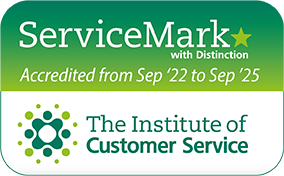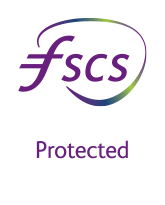Check out our back to basics, easy to understand guide to Cash ISAs.
Roger Knight is Newbury Building Society’s Lending Manager and in-house Shared Ownership expert.
He and his team help to arrange mortgages for people who want to buy a Shared Ownership property. This includes first-time buyers looking to step onto the property and those looking to purchase affordably.
Roger was previously interviewed by Sovereign Living Housing Association to answer some of their burning questions about Shared Ownership.
You can find the full interview below.
What is a Shared Ownership mortgage?
How do I find a mortgage lender?
“You could go straight to the High Street or scour the internet, but I’d suggest either coming to speak to us or consulting with the housing association your property is with. For example, if the property you have your eye on is with Sovereign Living, their Independent Financial Advisers (IFAs) is your first port of call. They’ll know who best to deal with, as not all lenders offer shared ownership mortgages.”
What information will I need to give when I apply?
“Details of the income you bring home each month, with documents to back that up. You also need to tell us what you pay out – credit card and loan repayments, for example. When you boil it down, it’s about whether you can afford to pay back what you borrow.”
How much can I borrow?
“As a rule of thumb, add up your earnings for the year before tax, then multiply the total by four. If you have credit cards or loans, you’ll need to subtract the annual repayments from your earnings, along with any rent you’ll be paying on your home.”
What kind of deposit should I be saving for?
“The bigger the better! At minimum, 5% of the share you’re buying. If you can make it up to 10% that gives you more options; the more you can put in, the more lenders you can choose from, and a higher number of cheaper products will be available to you.”
Are there additional costs to pay?
“Yes – the lender will charge an arrangement fee. Don’t forget you may also need to pay application fees, valuation fees, solicitors’ fees and stamp duty.”
Why do some people obtain a mortgage in principle, but then get declined when they submit a full application?
“Lenders make a decision in principle based on a conversation, and don’t do a credit check until you actually apply. It could be that something comes to light at that point in the process, or the figures in the paperwork don’t add up, that makes them think they should step away from the applicant.”
I don’t have a good credit score – what are the chances of me getting a mortgage?
“It’s still possible. Many people who don’t have a good credit score have simply never used credit, so not all lenders use credit scores to make their decisions. Some will do a credit check instead, which involves looking at your background and making sure you’ve paid your bills and rent on time, and that there’s no bad credit in your history.”
How can I improve my credit score for the future?
“Make sure you’re on the registered voters’ roll. If you’ve never used credit before you can boost your score by taking out a credit card. But make sure you clear the balance every month – missing just one payment can really mess things up, as not many lenders will listen sympathetically in the current market! Use credit, and use it wisely and well.”
Are there different repayment methods available?
“Some lenders might offer interest-only mortgages, but at the end of the term you’ll still owe what you borrowed, as you’ll only have paid back the interest the lender charged on it. With a repayment mortgage you make monthly payments that include capital – some of the money you borrowed – plus interest. This way, you gradually pay it all back.”
What can I do to ensure my mortgage offer is issued quickly?
“Get the paperwork ready – you’ll need P60s, payslips and bank statements, and if you’re self-employed you’ll have to request SA302s from HMRC. Answer every question on the form; write N/A against any question that doesn’t apply to you, to avoid delays.”
I’m self-employed – is it more difficult to get a mortgage?
“If you’ve got more than three years’ accounts, with paperwork that shows you’re earning enough profit to cover the repayments, then you won’t have an issue. Smaller lenders may be able to be more flexible, and look at individual cases.”
Are there any differences in obtaining a shared ownership mortgage?
“Not really – the application process is the same as with any mortgage. The main difference is that we subtract the monthly rent payments from your earnings when calculating how much you can afford to borrow.”
If it’s a sole application, will you take into account my partner’s income?
“Not normally – only the income of the person who’ll be named on the mortgage. This is because we can’t ask someone else to make mortgage payments if the applicant can’t!”
If I have children, will you take this into account?
“Yes, we take financial dependants living in the property into account when we look at your outgoings, because kids can be quite an expense!”
What advice would you give a first-time buyer?
“Take your time – think about it, and don’t jump at the first opportunity. If you’re going to buy a property, you need to know you’ll be comfortable living there for a while. Talk to more than one IFA, to get a consensus before making a decision on a mortgage.”
If you are looking for a Shared Ownership mortgage, please contact us and arrange an appointment. We provide a tailored and individual service, and we are available for Saturday appointments.
There is further information on the Shared Ownership scheme on the Own Your Home government website.
Remember: if you find mortgage jargon confusing then you’re not alone. Visit our full mortgage glossary for a complete breakdown of the terms you need to know. Alternatively, speak to one of our qualified mortgage advisers who will always speak to you in a way you understand.
*article reviewed June 2023
YOUR MORTGAGE IS SECURED ON YOUR HOME. THINK CAREFULLY BEFORE SECURING OTHER DEBTS AGAINST YOUR HOME. YOUR HOME MAY BE REPOSSESSED IF YOU DO NOT KEEP UP REPAYMENTS ON YOUR MORTGAGE.







